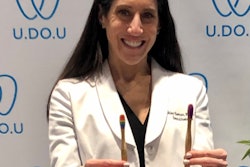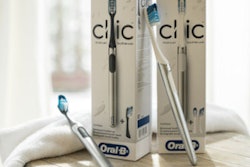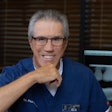
Researchers are shining a light on dentistry's full impact on the environment.
Faculty from McGill University in Montreal are measuring the carbon output of dentistry -- even that of a routine dental hygiene visit -- and devising ways to make dentistry greener, according to a university press release.
The goal is to pioneer the first fully sustainable dental facility, which could ultimately serve as a model for other universities and dental practices to become more eco-friendly.
"I want to spark a global reflection. I want to share our findings and engage the broader dental community to identify targets we can set to drive real, sustainable change," Dr. Christophe Bedos, PhD, an associate professor at the university who is leading the project, said in the release.
Bedos and researchers are measuring every aspect of dental care, including electricity, single-use latex gloves and plastics, water, and material sourcing, and their contribution to dentistry's carbon footprint. So far, one of the biggest contributors is emissions from patients' vehicles traveling to and from the clinic.
Transportation, Bedros said, contributes nearly a third of all carbon emissions, he said. Bedos and researchers are considering ways dentists could reduce auto emissions.
"Imagine you've had a tooth removed. Instead of returning to the clinic for a check-up, we could do it over Zoom or by phone," Bedos said.
McGill faculty are working with Synergie Sante Environment, a nonprofit that advises healthcare organizations on how they can adopt more environmentally friendly practices, to calculate their estimate. Once researchers' analysis is complete, a committee will recommend policy changes for the school's faculty.
So far, Bedos has created an online training program to help dentists implement changes in their practices.
"It's not just about immediate solutions," he said. "We need to think seven generations down the line and ask ourselves what kind of world we want to leave behind."



















